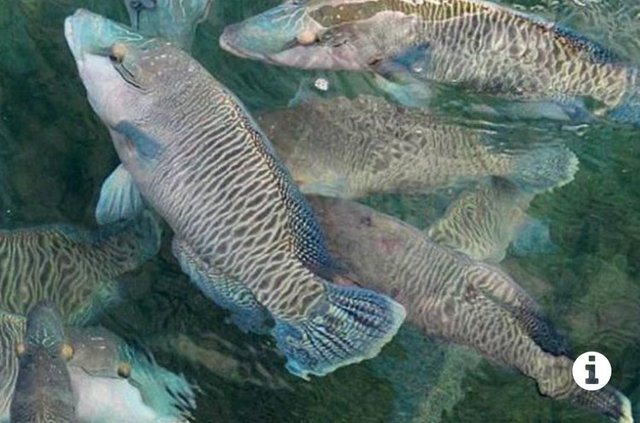
For the first time, as many as 1,000 Natuna napoleon fish originally exported to Hongkong by sea. The initial export, which was held in early February 2018, marked the opening of a napoleon fish export valve from Natuna and Anambas districts.
Director General of Aquaculture Fisheries Ministry of Maritime Affairs and Fisheries (KKP) Slamet Soebjakto said the opening of export taps is very profitable for the country, especially for local fishermen.
"The opening of napoleon exports by sea, from the economic side of course will be able to increase foreign exchange," said Slamet via press release on Tuesday (6/2/2018).
The export permit itself is given by the ministry, namely the Ministry of Marine Affairs and Fisheries, Ministry of Environment and Forestry, and the Coordinating Ministry for the Ministry of Home Affairs.
The export must meet the quota requirement. New napoleon fish can be exported if they meet the quota of 40,000 heads with a size of more than 1 kilogram to 3 kilograms per head.
Natuna Regency is allowed to export 30,000 kilograms. Meanwhile, the Anambas Islands District is allowed to export 10,000 kilograms.
However, Slamet also warned that the balance of economic interests and conservation must be maintained. Therefore, the export of napoleon fish should only be carried out in accordance with the corridor of the applicable regulations.
"We can not do it sporadically," Slamet said.
The provisions, firstly, the exporting vessel of foreign-flagged export commodities must have a permit to transport live fish from cultivation.
Second, the exported napoleon fish should really come from cultivation as evidenced by the Certificate of Origin.
Third, the exporter must pocket the permit of the animal distributor from the relevant authorities.
"Fourth, the transfer process (export commodities) should be recorded and under the supervision of BKIPM, Fisheries Supervisory, related offices as well as other authorities," said Slamet.
Prime Export Value Rp 1 Billion
Nato, one of the cultivators who exports Napoleon fish, was delighted at the policy.
Because, previously, the government only allowed the export of napoleon fish by air only and not specific to fishermen in remote islands in Indonesia. This causes the buildup of napoleon fish from the sea ranching in Natuna and Anambas.
At least more than 114,000 fish stocks napoleon sea ranching results spread across Natuna and Anambas at the end of 2017.
"Now, from 1,000 napoleon fish that we export, the selling value reaches more than Rp 1 billion," he said.
He also hopes that economic potential in Natuna can boost the economy of local fishermen.